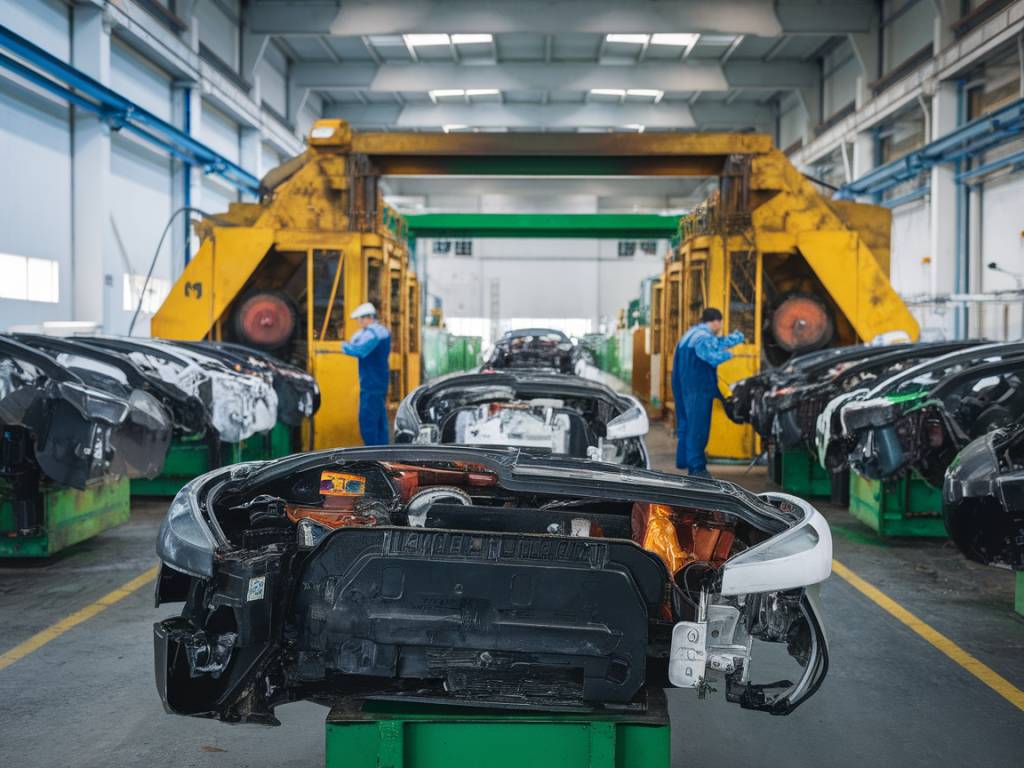With the rapid rise of electric vehicles (EVs) in the automotive market, a corresponding demand for efficient and sustainable electric car battery recycling has emerged. As the industry continues to adapt and innovate, understanding how electric car battery recycling is shaping the industry is paramount. This article aims to delve into the various facets of this evolving landscape.
The Importance of Electric Car Battery Recycling
The environmental benefits and sustainable energy credentials of electric vehicles are often highlighted, but the spotlight is now shifting towards the recycling of their batteries. Lithium-ion batteries, the heart of most EVs, come with significant environmental and economic costs, particularly when it comes to their disposal. Effective recycling can mitigate these costs, conserve natural resources, and reduce reliance on mining for raw materials.
Current State of Electric Car Battery Recycling
The current recycling processes for EV batteries primarily involve smelting and breaking down the batteries to recover valuable metals like lithium, cobalt, and nickel. Despite these efforts, the efficiency and cost-effectiveness of existing methods leave much to be desired. Only a small percentage of the total battery material can be retrieved and reused, highlighting the need for innovation and investment in advanced recycling technologies.
How Electric Car Battery Recycling Works
Understanding the recycling process sheds light on its complexities and potential improvements:
- Collection and Transportation: Once an EV battery reaches the end of its life, it must be safely removed and transported to a recycling facility. Proper handling during this phase is crucial to prevent hazardous material exposure.
- Dismantling: The batteries are then manually dismantled to separate the various components, including the casing, wiring, and electronic circuitry.
- Shredding and Crushing: The remaining battery cells are shredded or crushed to create a “black mass” consisting of a mix of valuable metals.
- Separation and Extraction: Through hydrometallurgical or pyrometallurgical processes, the black mass is refined to extract lithium, cobalt, and nickel.
- Recycling and Reuse: The extracted materials are purified and then repurposed to manufacture new batteries or other products.
Challenges in Electric Car Battery Recycling
Several challenges hinder the progress and efficiency of electric car battery recycling:
- Economic Viability: The cost of recycling can be prohibitively high, particularly when compared to the expense of mining new raw materials.
- Technological Limitations: Current technologies are not yet proficient at extracting all valuable materials efficiently.
- Regulatory Hurdles: Variations in regulations across different regions complicate efforts to standardize and streamline recycling processes.
- Safety Concerns: The risks associated with handling and dismantling high-voltage batteries necessitate stringent safety protocols and training.
Industry Innovations and Advances
Innovation is key to overcoming these challenges. Recent developments in the recycling sector show promise:
- Advanced Hydrometallurgical Techniques: These methods, which use chemical solutions to dissolve and separate metals, are becoming more efficient and cost-effective.
- Direct Recycling Methods: Emerging techniques involve rejuvenating battery materials with minimal preprocessing, preserving their structural integrity and reducing waste.
- Automation and Robotics: Leveraging robotic technology for battery dismantling enhances precision and safety, while reducing labor costs.
- Second-Life Applications: Repurposing EV batteries for less demanding applications, such as energy storage systems, can extend their useful life and delay the need for recycling.
The Role of Policy and Regulation
Government policies play a vital role in shaping the landscape of battery recycling. Enhancing regulations and providing incentives can spur progress in this field. Key policy measures include:
- Extended Producer Responsibility (EPR): Mandating that manufacturers bear the cost and responsibility for the lifecycle of their batteries encourages sustainable design and recycling practices.
- Recycling Targets: Setting mandatory recycling targets for EV batteries can drive up the demand for recycled materials and improve recycling rates.
- Funding and Grants: Allocating government funds for research and development in recycling technologies can accelerate the pace of innovation.
- Standardization: Establishing uniform standards for battery design and recycling procedures can streamline processes and reduce inefficiencies.
The Future of Electric Car Battery Recycling
As the number of electric vehicles on the road continues to rise, so will the volume of end-of-life batteries. The recycling industry must therefore prepare for the impending influx. Key trends and predictions for the future of EV battery recycling include:
- Increased Recycling Capacity: Investment in new recycling facilities and expansion of existing ones will help accommodate the increased demand.
- Technological Breakthroughs: Ongoing research into emerging technologies, such as bioleaching and solid-state batteries, may revolutionize the recycling process.
- Circular Economy Models: Promoting a circular economy, where materials are continuously recycled and reused, will create a more sustainable and resilient supply chain.
- Collaboration Across Sectors: Partnerships between automotive manufacturers, recycling companies, and governments can drive innovation and establish efficient recycling networks.
In conclusion, the critical role of electric car battery recycling in shaping the automotive industry cannot be overstated. As technologies advance and policies adapt, the potential benefits for the environment, economy, and sustainable transportation are immense. Stakeholders at every level must continue to invest in and prioritize effective recycling solutions to ensure a cleaner, more sustainable future for all.

